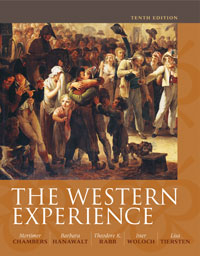1 A) diplomatic negotiations with other states B) the value of liberal economics C) the strength of the military D) popular support and parliamentary institutions E) fostering communist revolution abroad 2 A) imposed communism on Russia through collectivization and the five-year plans. B) permitted small businesses and peasant enterprise to help rebuild the country. C) intensified and extended "war communism" to cope with the threat of civil war. D) accepted private ownership of major industries while taking over the small businesses. E) created a system of penal institutions, or "gulags," to deal with dissidents. 3 A) peasant unrest, labor conflicts, and ongoing political turmoil. B) inflation. C) unemployment. D) disillusionment about the peace treaty. E) war weariness. 4 A) the leader of the party, Mussolini, ruled by decree. B) opposition parties were outlawed and suppressed. C) economic life was regulated by confederations of employers and workers. D) people's lives gradually improved as per capita output and the real wage rose. E) the civil service and judiciary was purged of anyone who was too independent. 5 A) a revolt by the agrarian classes B) revolt from within its own ranks C) lack of funding D) armies under the command of former tsarist officers E) a lack of organization and discipline 6 A) brought a tentative peace between Italy and Austria. B) forged the first pact between Italy and Germany. C) ended the conflict between Italy and the Church. D) saw an end to the naval conflict between Italy and Britain. E) ended the opposition to Mussolini's rule by domestic guerilla groups. 7 A) proved that matter could undergo change into energy. B) proved that Newtonian physics was correct. C) seemed to invalidate Einstein's theory of relativity. D) disproved that the universe was composed of a substance called "ether." E) proved that matter could not undergo change into another form. 8 A) the isolation of viruses and the development of antibiotics in medicine. B) discoveries about the nature of heredity and their application to agriculture. C) the application of statistical tools to the study of human society. D) the refinement of thermodynamics and the explosive creativity of the Bauhaus. E) the use of statistical tools to analyze how societies function. 9 A) burlesque. B) the novel. C) opera. D) poetry. E) movies. 10 A) a return to Classical form. B) noisy nonsense and absurd juxtapositions. C) surrealist values. D) a reaction against the absurdism of surrealist expression. E) a celebration of militarism. 11 A) evidence that fascism in Germany was taking on a nightmarish form B) opposition from Britain, whose interference they feared C) opposition from France, on whose support they depended D) the inability of the fascist forces to offer better economic solutions to the depression E) the embrace of militarism by the democratic factions 12 A) the world was producing only two-thirds as many manufactured goods as in 1928. B) 13,000,000 Americans, 6,000,000 Germans, and 3,000,000 English people were unemployed. C) Germany stopped paying reparations, and the ex-Allied countries stopped paying their war debts. D) a series of communist revolutions broke out across Europe, inspired by Russia's success. E) countries began to withdraw investment from foreign countries. 13 A) Hitler's messianic speaking style, his angry yet hopeful message, wealthy patrons, and the use of violence. B) the long-term dissatisfaction of many Germans with the defeat in World War I and social upheavals following. C) the immediate misery caused by the Great Depression, which the Weimar republic seemed unable to solve. D) direct personal attacks on Hitler by prominent Jewish merchants, which inspired the larger public to support him. E) the inability of democratic institutions to take root after the First World War. 14 A) abolished the Social Democratic party. B) legalized the Nazi party. C) granted him the right to enact all laws and treaties independent of constitutional restraints for four years. D) was initially rejected, the last attempt at curtailing his power by the failing Social Democrats. E) granted the Nazi party the right to sit in the Reichstag. 15 A) Stalin. B) Trotsky. C) Bukharin. D) a collective leadership including Stalin, Trotsky, and Bukharin. E) Zinoviev. 16 A) collectivizing agriculture, despite massive resistance, deportations, and famines that killed millions. B) making the USSR the world's third largest industrial producer, increasing steel by 5 times and electricity by 25. C) increasing literacy rates from below 50 percent to above 80 percent, and raising the standard of living. D) ending the need for strict political controls because of widespread satisfaction with the economic growth. E) the creation of Machine Tractor Stations where large farm machinery could be concentrated in a place that could serve as base of operations for agricultural agents and party officials. 17 A) increasing the size of the deficit. B) spending too much on welfare programs. C) pursuing conservative policies. D) excessive militarism. E) seeming sympathetic to fascist regimes. 18 A) Alfred Rosenberg and Giovanni Gentile. B) Nikolai Berdyaev C) W. H. Auden, Thomas Mann, and André Malraux. D) Karl Barth and Jacques Maritain. E) Martin Buber. 19 A) governments should engage in deficit spending to stimulate demand for goods and services. B) individuals should use credit cards to buy things in order to stimulate demand for goods and services. C) businesses should take out loans and expand their operations to capitalize on low prices and wages. D) banks should lend aggressively in order to stimulate increased production for the market. E) governments should not hesitate to nationalize the means of production until the crisis had passed. 20 A) it demonstrated that the democracies lacked the will to oppose aggression in Europe. B) it created a strong new fascist power that played a vital role in World War II. C) it offered an opportunity for the West and Russia to cooperate, as they would later in the war. D) it proved that aggression would be met by forceful action by the democracies, deterring war. E) it gave the democracies the opportunities to perfect new weapons technologies.





